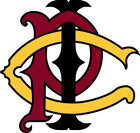Early Childhood Education Vocational Courses
Grade 10 Courses
Introduction to Early Childhood Education EC120SV.1
Learners will be introduced to the structure, scope and playfulness of Early Childhood Education, including educational and career opportunities. They will become aware of the importance of child development, planning a safe and healthy environment, building partnerships with families and community and creating joyful and engaging environments where children grow and thrive.
Relationships with Children in ECE EC230SV.1
Learners will identify the importance of nurturing relationships between children and adults and foster social and emotional well-being. They will acquire positive guidance strategies, and ways to address challenging behaviours in mindful ways. During applied experiences under the guidance of an ECE, learners will build trusting relationships with each child while demonstrating developmentally appropriate guidance and caring practices.
Grade 11 Courses
Professionalism in Early Childhood Education EC640SV.1
Learners will identify professional standards/employability skills required by early childhood educators. They will reflect on children’s rights; the emerging growth of, changes to and issues in the early childhood sector; their professional philosophy of the care and education of young children;and the importance of continued professional learning and growth to the ECE career path. During applied experiences under the guidance of an ECE, learners will demonstrate positive work habits that will improve their personal practice and prepare them for a career in early childhood education.
Early Childhood Environments in ECE EC330SV.1
Learners will identify the environmental components that promote engagement, play, exploration, and learning in all children, including those with additional support needs. During applied experiences under the guidance of an ECE, learners will help develop and support culturally responsive, holistic, inclusive, safe and healthy play-based learning experiences and environments.
Child and ECE Practitioner Wellness EC430SV.1
Learners will identify the specific regulations and best practices for establishing safe, healthy, inclusive and equitable learning environments for diverse young children, families and themselves. They will acquire knowledge regarding the principles of physical and mental health and well-being, including child illness and disease, nutrition and the importance of self-care.During applied experiences under the guidance of an ECE, learners will model healthy and safe practices, and help to ensure the well-being of each child in their care while practicing their own self-care strategies.
Applied Practice I in ECE EC530SV.1
Learners will work directly with children in an early learning and child care facility under the mentorship of an Early Childhood Educator. During Applied Practice I, learners will foster relationships with children while demonstrating developmentally appropriate practice; support ECEs in providing safe, healthy play-based experiences; and develop an awareness of the demands of the ECE workplace and the need to maintain personal wellness.
Grade 12 Courses
The Developing Child in ECE
Learners will identify children’s developmental domains, key child development theories and the impact of family and culture upon child development. They will learn how to conduct objective, bias aware observations and simple assessments of young children. They will explore the significance of developmentally and culturally appropriate materials, experiences and teaching strategies that help young children successfully transition from one developmental stage to the next. During applied experiences under the guidance of an ECE, learners will conduct observations, grow to know each child as an individual and create responsive plans.
Play in ECE
Learners will explore theories of play, emergent curriculum and the benefits of play-based learning. During applied experiences under the guidance of an ECE, learners are responsive to individual children, identify and use open-ended materials, and plan opportunities that foster exploration, child choice, and multiple areas of development and learning.
Family and Community in ECE
Learners will reflect on how family perspectives/beliefs, structures and lived experiences may differ from their own. They will explore effective communication techniques, as well as partnership strategies that empower and engage families and communities in children’s learning. During applied experiences under the guidance of an ECE, learners will help staff engage family and community in their children’s development.
Applied Practice in ECE II
Learners will continue to improve their skills while working directly with children in an early learning and child care facility under the mentorship of an Early Childhood Educator. During Applied Practice II, learners will observe and grow to know each child as an individual in order to plan responsive play opportunities for children; collaborate with ECEs to encourage family and community engagement, and demonstrate positive work habits that prepare them for a career in early childhood education.
